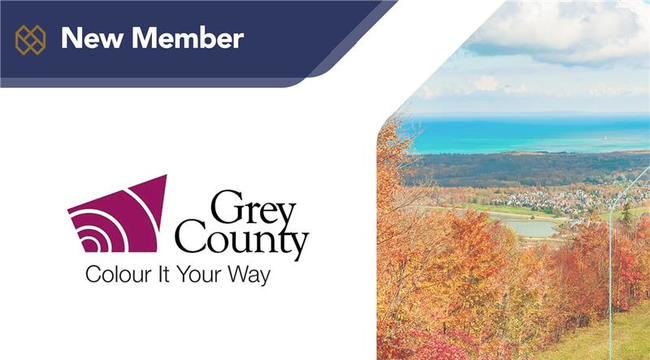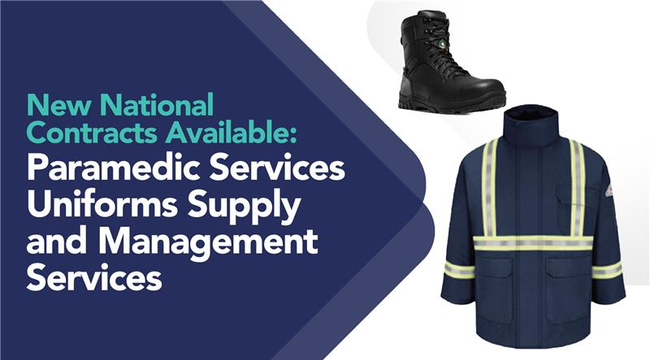HealthPRO Canada News
November 09, 2021
In healthcare law, you never know what’s coming and for HealthPRO Board Member Marc Toppings, that’s what makes it interesting

HealthPRO board member Marc Toppings imagined he might one day work as a genetic scientist, but he found a happy intersection working as a healthcare lawyer. There’s always variety in the work and it’s not hard to get behind the mission of your employer when that mission is to do good in the world.
________________________________________________________________________
Marc, in your undergraduate and post-graduate education, you focused on science. Your area of specialization at McGill was human genetics, a fascinating field. What motivated you to move from what was clearly a strong interest in science into law?
I did my undergrad in life science and English and then a master’s degree in genetics. It was a very exciting time in genetics. They were doing the Human Genome Project. I remember going into genetics with the intent of going into law after. I think the two are complementary in that a Master’s in science and a law degree are both very much based on inquiry and defensible decision-making and judgment.
I was lucky enough in my Master’s to work with Dr. Jacquetta Trasler at McGill in the Montreal Children's Hospital. I was looking at imprinting, which is very important in the genetic world for both cloning and for reproductive technologies.
I was interested in combining that with the law and, in law school, I did an internship in my first year at the World Health Organization (WHO) in Geneva in genetics, ethics and law. A lot of amazing experiences came out of that – I got to see the inner workings of an international NGO and attend the World Health Assembly where Bill Gates gave the keynote address.
Following that experience, I went into privacy practice at McCarthy Tétrault where I practiced in the litigation department. After a few good years at McCarthy’s, however, I started looking for something that was more aligned with why I had initially gone into law – with a bit more by way of direct overlap with healthcare. There was an opportunity to go in-house as the inaugural corporate counsel at St. Michael’s Hospital and I haven't looked back.
Was there any hesitation on your part in moving away from strictly genetics?
I'll say this, I'm really glad I did it. It's nice to be able to say that for a part of my life, I was a bench scientist. I think the highs in that are probably as high as it gets because you are pushing the boundary of human knowledge. You might, for a little bit of time, know something that nobody else knows, and that's very exciting. I really liked that kind of thinking, the academic debate and the rigour. But in terms of what I was reading for pleasure, it was more and more broad policy-based. My interests were changing.
You’ve worked for several large healthcare organizations in Toronto – Sinai Health System, Baycrest Health Sciences, St. Michael’s Hospital, and now UHN. What’s satisfying about practicing law in a healthcare environment?
I get asked what I like about this work all the time by students who are interested in pursuing careers in health law or working in-house at a hospital. I think first and foremost, it’s the alignment of my values with those of the client. So, it's very easy as a lawyer to get behind a St. Mike's, or a UHN, or a Sinai, or a Baycrest. They're really trying to do good in the world.
As a lawyer, there are always some tasks that you might not love to do. But when you believe ultimately in what your client is doing, I think that brings a real sense of satisfaction to the work and makes everything more worthwhile. That’s been really highlighted by the pandemic. UHN was the first hospital in Canada to give out a vaccine and, in partnership with others, the first to set up mobile vaccination clinics. Again, with strong community and City partners, UHN set up two hospital sites in hotels to support those experiencing homelessness.
Another thing is just the sheer variety of work that comes across the general counsel's desk in a hospital. When I was hired at St. Mike's, my then-boss told me you're going to do everything except maritime law. You do some corporate, some real estate, some regulatory, some family and so on. You never really know what's going to come across your desk in any day and that makes it very intellectually stimulating.
It must also make your life very busy.
Yes, it’s quite busy. It was different at the start of the pandemic because then it was all hands on deck with respect to COVID-19. We shelved everything else as we adapted and focused exclusively on the pandemic and the response. What’s been interesting over the second, third, and fourth waves is all those things that got put aside have come back. You still have COVID-19 in the background, but now you're doing your normal job in addition to that.
In your current position, you’re providing legal counsel to everyone from the Board of Trustees to the leadership team, physicians and researchers. Are there common issues that come up all the time or is every issue different?
Well, I think you're constantly learning, for sure. A lot of the things you do are things you would do as general counsel somewhere else – governance and board support, contract negotiation, procurement, legislative compliance – but then you also have this interesting overlay of health law issues – real live patient considerations – in a heavily regulated industry. And that’s what makes the work in the hospital so interesting. Issues specifically related to patient care, such as consent and capacity, substitute decision-making, medical assistance in dying, questions around privacy and data security. Those issues with a real personal element make the work very rewarding.
When you're mentoring younger lawyers, what are some of the things that you hear from them, or that you really try and teach them through your own experience?
Oh, that's interesting. I don't think you can really do the law without understanding the client and the client's needs. It’s obviously been harder during the pandemic, but I try and teach all the young lawyers to go and meet with the client – go to the department, have a tour, see what and who you're trying to support.
So, if they're doing a contract with the transplant team, go and visit that area to see what it's like. Or if they're doing a research agreement, go to the lab. If you're doing a contract on something like wastewater chillers, you should go and take a tour of that area and that facility.
That’s one of the real benefits of being in a hospital, as opposed to say a private practice lawyer, where we really are much more ingrained with the client. That's part of our value add is understanding the client, understanding what they're going through and understanding their risk tolerance.
What makes the mission of HealthPRO meaningful to you?
I think HealthPRO has this really nice synergy in terms of their basic tenet to make Canada a healthier place. Recognizing that we're only two per cent of the global health market, what can we do to leverage all we have to really drive the best value for the Canadian market? How can we help Canadians to get access? At its core is something that’s very easy to get behind.
The pandemic really shone a light on some of the vulnerabilities we have in terms of supply chain, and the protectionist measures that can quickly affect our access to materials. It’s really interesting for healthcare GPOs and others to figure out what role are we going to play and how can we be advocates for improved processes going forward.
I admire the way HealthPRO is constantly adapting, monitoring, pushing. It’s an interesting dynamic.
Why is good governance critical in any organization – and specifically in the field of healthcare?
I think the board plays such an important role in an organization because it really is a check on management – a strategic oversight role that also kicks the tires. I always borrow this line from Arlene Wilgosh, our Board Chair at HealthPRO: the board has noses in and fingers out.
I've definitely found in the hospital sector the boards to be extremely sophisticated and savvy - they bring a lot of value to the table based on their backgrounds in different industries. That kind of infusion of ideas and sharing of past experience is important from a strategic lens and from a risk lens.
What important lessons have you learned from the mentors in your life?
One thing that you really learn in law is the benefit of having both formal and informal mentors. I have both of those, people I still go to for advice or to act as sounding boards. I think sometimes, maybe one of the best lessons is just making yourself available. I find that the mentors who have really helped me the most have been the ones who have been very willing to "talk off the record," or make themselves available to answer any and all questions.
When you need a creative boost, or just to step away, what do you do?
It used to be a lot of squash. Squash went away with the pandemic. We recently got a puppy. And so I think we’ve both benefited from long walks together.


